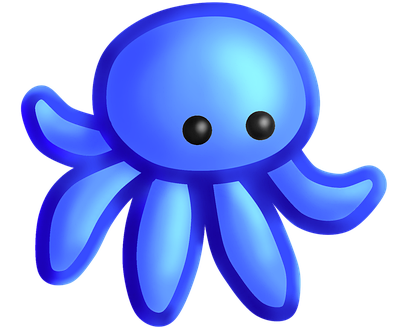
Essential Considerations Before Buying a Pet Octopus
Owning a pet octopus requires thorough preparation and consideration. Here’s a comprehensive list of factors to evaluate before bringing an octopus into your life:
1. Species Selection
- Size and Habitat Requirements: Different species have varying space needs. For example, dwarf octopuses can live in smaller tanks, while species like Octopus vulgaris require large aquariums.
- Lifespan: Octopuses have short lifespans (6 months to 3 years). Be prepared for a short commitment relative to other pets.
- Temperament and Activity: Some species are more interactive and curious, while others are reclusive. Match the species to your expectations.
2. Legal and Ethical Considerations
- Legal Requirements: Check local laws and regulations on keeping octopuses as pets, including permits and restrictions.
- Ethical Concerns: Ensure the octopus is sourced ethically, avoiding specimens caught through harmful practices. Opt for captive-bred octopuses where possible.
3. Tank and Equipment Needs
- Aquarium Size: A minimum of 50 gallons for smaller species; 75–100 gallons for larger species.
- Secure Setup: Octopuses are escape artists. The tank must have a tightly sealed, escape-proof lid.
- Filtration System: High-quality filters and protein skimmers are necessary to maintain pristine water conditions.
- Water Quality Monitoring: Octopuses are sensitive to changes in pH, salinity, and temperature, so regular testing is essential.
4. Financial Costs
- Initial Setup Costs: Tanks, filtration systems, heaters, chillers, and lighting can be expensive upfront.
- Ongoing Costs: Food, replacement equipment, electricity, and water treatment products.
- Veterinary Costs: Access to a marine vet can be costly and may be challenging to find.
5. Feeding and Diet
- Food Requirements: Octopuses eat live or frozen seafood like shrimp, crabs, and fish. Some species require live prey, which can be expensive and difficult to source.
- Feeding Schedule: Octopuses need frequent, species-appropriate feedings, often daily or every other day.
6. Behavioral and Mental Needs
- Enrichment: Octopuses are highly intelligent and require mental stimulation, such as toys, puzzles, or interactive feeding methods.
- Socialization: While they don’t form bonds like mammals, octopuses may interact with their owners. Be prepared to invest time in observing and engaging with your pet.
7. Environmental Factors
- Lighting: Most octopuses prefer dim or subdued lighting as they are nocturnal.
- Water Temperature: Maintain species-specific water temperatures, often 72–76°F for tropical species and cooler for cold-water species.
- Substrate and Decor: Provide sand or fine gravel, live rock for biological filtration, and hiding places such as PVC pipes or caves.
8. Compatibility with Other Tank Inhabitants
- No Tank Mates: Octopuses typically view other creatures as prey or competition, making them unsuitable for community tanks.
9. Maintenance Commitment
- Frequent Cleaning: Tanks need regular cleaning, including siphoning debris and monitoring ammonia/nitrite/nitrate levels.
- Water Changes: Perform regular water changes to maintain optimal conditions.
10. Personal and Lifestyle Considerations
- Time Commitment: Octopuses require daily attention for feeding and care.
- Travel Plans: Consider how you will care for your octopus when you are away. Octopuses need consistent care, so arrangements must be made for their upkeep.
- Short Lifespan: Be prepared for the emotional impact of losing your pet after a relatively short time.
11. Emergency Preparedness
- Backup Power: Ensure a reliable backup system for the tank in case of power outages.
- Marine Veterinarian Access: Locate a marine vet experienced in octopus care.
12. Research
- Species Knowledge: Learn everything about the specific octopus species you want to keep.
- Networking: Join forums or communities for advice and support from experienced octopus keepers.
Conclusion: Taking the time to carefully consider all these factors ensures you can provide the best environment and care for your pet octopus while enjoying a rewarding and unique pet-keeping experience.
